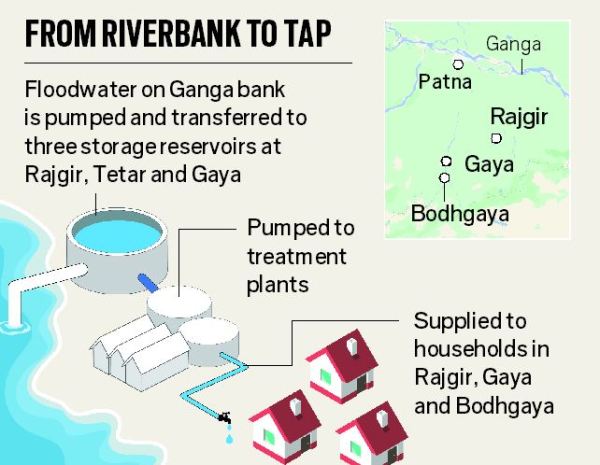Raids every 2 minutes, alcohol in gas cylinders: How two years of Bihar’s prohibition panned out
3 min readBihar completes two years of a statewide prohibition of alcohol, enacted under one of the most stringent laws that punished even the possession of liquor with jail terms of up to 10 years.
In these two years, on an average, police conducted a raid every two minutes and seven people were arrested every hour, according to state government data.
The police and the excise department have registered more than 96,000 cases in an effort to wipe out liquor — a key poll promise that helped chief minister Nitish Kumar sweep to power in 2015. More than 4,000 people are currently in jail.
But on the streets of its biggest cities and remotest villages, the government is struggling to keep pace with a thriving bootlegging business that is not just procuring liquor from neighbouring states but has also worked out a sophisticated distribution process. Action has been undertaken against 361 police officers in these two years as the police have seized 2.3 million litres Indian Made Foreign Liquor (IMFL) and country-made liquor. In many cases, liquor has been seized from government vehicles.
Additional director general of police (headquarters) SK Singhal said police alone has registered 62,000 FIRs. Many people from other states have also been arrested for smuggling liquor. “The surveillance has been increased,” he said.
Prohibition was demanded by many women’s groups, who complained liquor was responsible for rising violence. Women voters were said to be one of the main reasons for Kumar’s victory. But the Bihar Prohibition and Excise Act has been criticised as draconian and blamed for poor, marginalised, infirm and elderly ending up in jail.
“Visit the Dalit colonies and in some areas you will find the entire population in jail,” said All India Progressive Women’s Association (AIPWA) national general secretary, Meena Tiwari.
The illegal business has thrived — liquor has been found inside cooking gas cylinders, chassis of scooters, leather padding in cars, and covers of spare wheels. But the government has refused to back down. In fact, Nitish Kumar has been so particular about prohibition that he has constituted a separate wing, headed by an Inspector General-rank officer to make enforcement tighter.
“There can be no compromise on prohibition despite expected obstacle to the big social reforms initiative,” the chief minister said in the Vidhan Sabha recently.
The government said that overall crime fell by over 18.5% since prohibition was enforced, while accidents dropped by over 30%. There has been 24% drop in dacoity and 28% fall in kidnapping for ransom, the government said.
“We are happy now. We eat better food and also have clothes to put on,” said Sushma Devi, who led the protest against alcoholism in her hometown of Imamganj.
 Politically too, prohibition has changed contours. When Kumar first clamped the ban, he was in a coalition government with the Congress and the Rashtriya Janata Dal (RJD), which backed the law. Since then, Kumar has dumped the coalition and is supported by the Bharatiya Janata Party (BJP), which has turned from a vocal critic to a reluctant supporter.
Politically too, prohibition has changed contours. When Kumar first clamped the ban, he was in a coalition government with the Congress and the Rashtriya Janata Dal (RJD), which backed the law. Since then, Kumar has dumped the coalition and is supported by the Bharatiya Janata Party (BJP), which has turned from a vocal critic to a reluctant supporter.
“Daroo (liquor) and baloo (sand) have taken a heavy toll on the state, as it has mostly affected the poor. They will reply through ballot,” said RJD MLA Bhai Birendra, referring to an illegal sand mining mafia.
The BJP’s Darbhanga MLA Sanjay Saraogi said prohibition was always a bold move, but it had succeeded in sending a positive message. “By and large, it has transformed the village atmosphere,” he added.
Kumar’s Janata Dal (United) recently lost the only assembly bypoll it contested in Jehanabad, adding to its concerns that its Mahadalit and Other Backward Class (OBC) base was slipping. But the party has dismissed any such suggestions.
“There is no politics in prohibition. It is a people’s movement,” said JD(U) general secretary Sanjay Jha.
Courtesy: Hindustan Times


